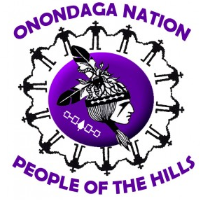Onondaga Tribe Appeals to Human Rights Court

A Native American tribe in upstate New York has taken its land claims against the U.S. government to a foreign human rights court after the American judicial system rejected its case.
The Onondaga Nation spent eight years trying to get a U.S. federal court to side with its arguments that the state of New York illegally took possession of 4,000 square miles of tribal land in the late 18th and early 19th centuries.
But within days of the Onondaga filing its case in 2005, the U.S. Supreme Court ruled in another lawsuit that the Oneida Indian Nation had waited too long to pursue its claim to 250,000 acres in Madison and Oneida counties.
The Oneida ruling “essentially ended Indian land claim cases in New York and became the basis for the courts to reject the Cayuga Nation and Onondaga Nation claims,” reporter Glenn Coin wrote at Syracuse.com.
Nevertheless, Onondaga lawyers pursued their case before a federal appeals court and the Supreme Court, the latter last year upholding its earlier ruling involving the Oneida.
With no other legal options available in the U.S., the Onondaga filed a petition with the Inter-American Court of Human Rights (IACHR), which is part of the Organization of American States (OAS).
“We understand that the U.S. does not adhere to the OAS, but I don’t know where we go,” Onondaga leader Sid Hill told Inter Press Service (IPS). “We’ve exhausted our avenues.” The IACHR normally takes several years to decide whether to take a case.
The tribe’s complaints go beyond land ownership. It also says state and federal agencies allowed American factories to pollute Lake Onondaga, which once was part of tribal lands. “Onondaga Lake, a sacred lake, has been turned into the most polluted lake in the country,” Joe Heath, the tribe’s attorney, told IPS. “Allied Corp. dumped mercury in the lake every day from 1946 to 1970.”
Allied eventually merged with Honeywell, and the company has pledged $450 million to clean up the lake by 2016. But Heath says the state determined it would cost $2.3 billion to undo the damage, an indication that the company’s remediation will fall short of what’s needed.
-Noel Brinkerhoff
To Learn More:
U.S. Tribe Looks to International Court for Justice (by Michelle Tullo, Inter Press Service)
Onondaga Nation to Accuse U.S. of Human Rights Violation in International Forum (by Glenn Coin, Syracuse.com)
U.S. Supreme Court Rejects Appeal, Ends Onondaga Nation Land Claim Case (by Glenn Coin, Syracuse.com)
Honeywell Reports ‘Terrific Progress’ in Onondaga Lake Cleanup; Onondaga Nation Says It’s Not Enough (by Glenn Coin, Syracuse.com)
- Top Stories
- Unusual News
- Where is the Money Going?
- Controversies
- U.S. and the World
- Appointments and Resignations
- Latest News
- Trump Renames National Football League National Trump League
- Trump to Stop Deportations If…
- Trump Denounces World Series
- What If China Invaded the United States?
- Donald Trump Has a Mental Health Problem and It Has a Name






Comments